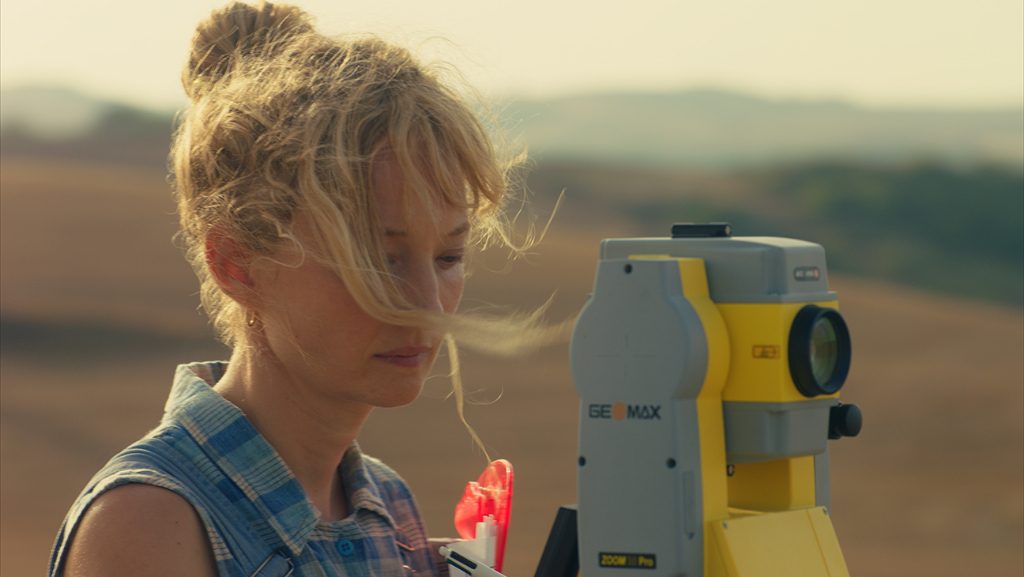Lucia’s Grace (Troppa Grazia)

A modern miracle comes to life in Gianni Zanasi’s Lucia’s Grace (Troppa Grazia). Starring Alba Rohrwacher as the titular Lucia, this Director’s Fortnight pick is an unsuspecting yet intriguing take on faith and its place in our contemporary society.
The film’s protagonist is a single mother struggling to keep her head above water while balancing a strained relationship, a teenage daughter and an unfulfilling career as a land surveyor. When finally given an opportunity to work on a big project for a prestigious client, Lucia finds herself in an awkward position as she comes to realise that the land may not be suitable to build their behemoth structure. The arrival of a mysterious woman (Hadas Yaron) shrouded in ancient garb only further complicates the situation. The figure inexplicably appears exclusively to Lucia, and commands that she tell her superiors to construct a church on the site. Naturally, this suggestion is laughed at, but after the woman demonstrates her power through a series of miracles, Lucia is convinced of her divinity and commits to fulfilling her command.
Age-old questions come to the forefront, and to see them played out in a modern context is both comical and seriously thought-provoking. The audience are presented with the juxtaposition of coincidence versus divine intervention and insanity versus belief. The Virgin Mary at one point tells Lucia to relay the word “water” to the contractors as a warning to cease their operation immediately. The main character gives them the message, and the very next day the town is inexplicably flooded. What initially appears to be the hand of holy intervention is explained as a burst pipe in the town’s sewage system. When the visions first begin, Lucia and those around her believe she’s experiencing religious delusions and losing her mind. Eventually, she accepts this insanity as faith and cautiously embraces her role as a modern saint.
The feature walks us down the thin line that is spiritual belief. There isn’t a defining moment that shifts Lucia’s opinion, but rather it’s the build-up of moments that seem too perfect to be coincidental which convince her. Interestingly, it’s ultimately two disciples who shut down the construction site, suggesting that God doesn’t have the power to actually make things happen in the world, only to influence men into action.
Rohrwacher shines in the role of the unsuspecting conduit of the Lord’s will, and on the whole, Troppa Grazia presents us with some fascinating points to reflect upon.
Zoe Tamara
Lucia’s Grace (Troppa Grazia) does not have a UK release date yet.
Read more reviews from our Cannes Film Festival 2018 coverage here.
For further information about the event visit the Cannes Film Festival website here.



























Facebook
Twitter
Instagram
YouTube
RSS